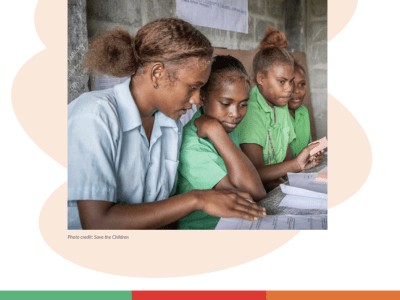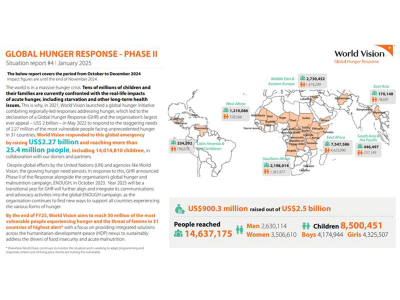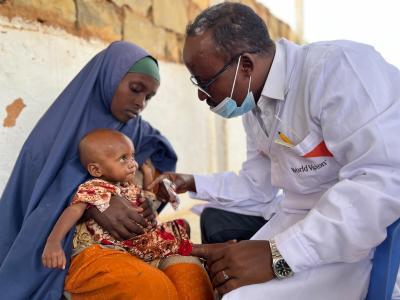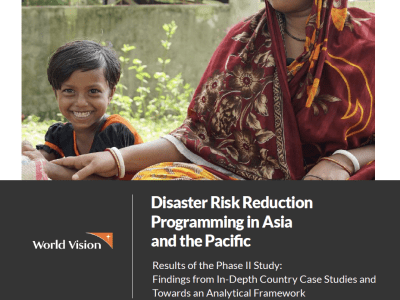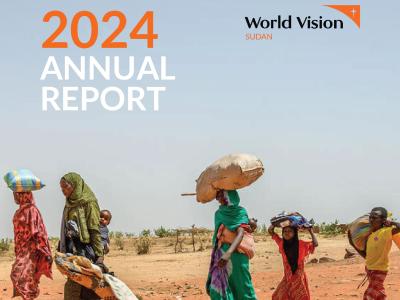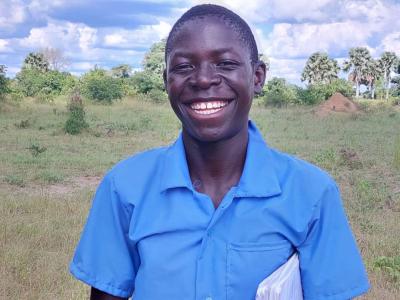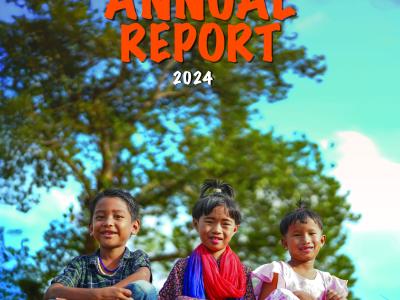publication / December 30, 2024
Make it 18 Report: Community Voices on Child Marriage Reform in Solomon Islands
Make it 18 Report: Community Voices on Child Marriage Reform in Solomon Islands
publication / January 31, 2025
Global Hunger Response - Phase II Quarterly Situation Report - January 2025
First 2025 GHR quarterly report details qualitative and quantitative impacts, regional overviews, and highlights from Phase II (Oct-Dec 2024).
article / February 2, 2025
Hope Through Lifesaving Humanitarian Support in Somalia
Through the NextGen project, World Vision is not just responding to emergencies—it is helping communities rebuild, recover and regain their dignity after enduring the devastating impacts of floods, droughts and conflict-induced displacement.
publication / January 27, 2025
Phase II Study: Disaster Risk Reduction Programming in Asia and the Pacific
Disaster Risk Reduction Programming in Asia and the Pacific
publication / January 15, 2025
2024 Annual Report - Sudan
World Vision Sudan FY24 Annual Report: Highlights impactful humanitarian efforts, supporting 2.8M people, including 1.5M children, amid Sudan's ongoing crisis.
article / January 29, 2025
Water Brings Hope For The Future
“Water made it possible for me to go back to school, says 18-year-old Dunford Shimpande of Mbeza, a remote village in Southern Zambia.
publication / January 30, 2025
World Vision Bangladesh Annual Report 2024
Discover how World Vision Bangladesh empowered communities, strengthened systems, and transformed lives in 2024. Read our Annual Report 2024
